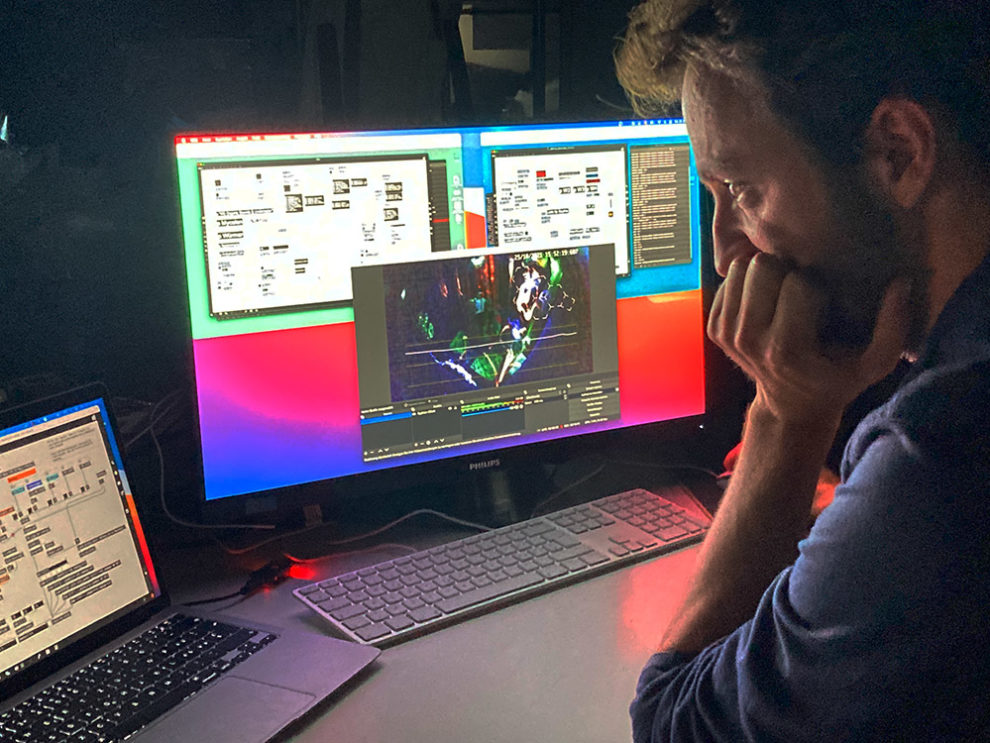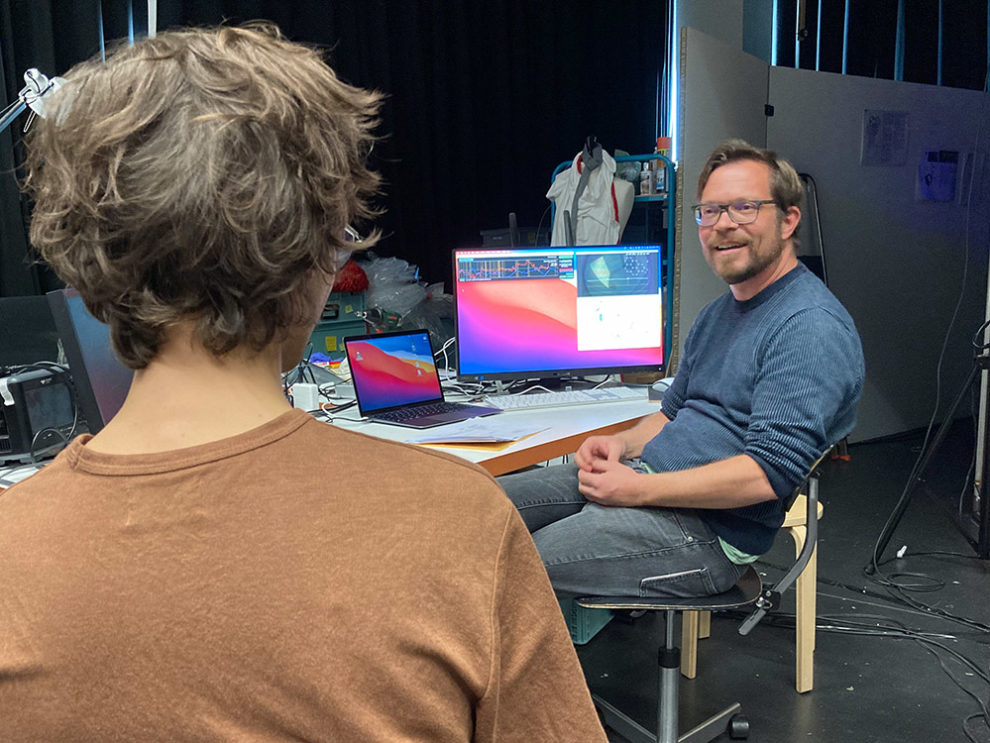Applied methodology
The experiments are carried out in two separate research settings, installed at the Critical Media Lab of the Academy of Art and Design FHNW in Basel. The investigations in these «method spaces» are not concerned with the development of concrete applications, but with a critical reflection on the manifold connections between technical, human and design epistemology. Strategies and forms of expression of media art and Speculative & Critical Design make it possible to create tangible and thus negotiable key situations. However, they are built upon fully functional sensor-actor systems and rule-based and artificially intelligent analysis algorithms.
UbiComp paradigms such as invisibility, seamlessness/seamfullness, immediacy, interconnectedness, and the namesake ubiquity are starting points for design efforts and content implementations. We evaluate the staged research settings with test persons according to the following criteria:
- Experience (perception of events),
- Sensation (emotional, affective perception),
- Behavior (action and reaction),
- Association (cognitive mapping) and
- Interpretation (reflection) evaluated with test subjects.
Besides the algorithmic data analysis of collected sensor values we apply ethnographic methods. Interviews and questionnaires are used to capture human perception and user experience. The mixed methods approach allows comparing and combining human and machine perspectives. The final goal is to situate possible implications, elaborate new design principles and sketch alternative future scenarios in techno-socially hybrid environments. The data and documents are analyzed along the UbiComp core concepts and categories.



